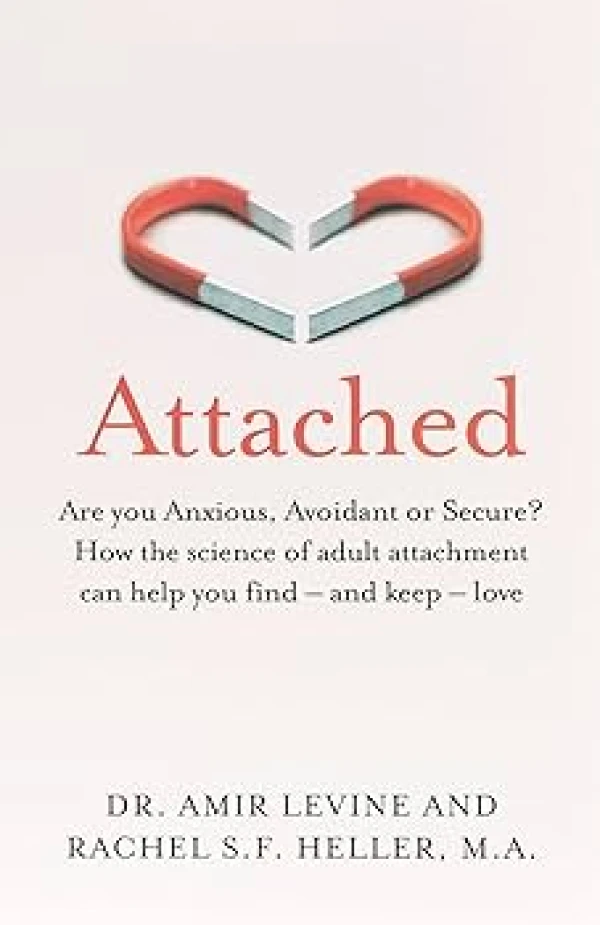Detailed Review
Navigating the complexities of adult relationships can often feel like wandering through a maze without a map. In ‘Attached’ (2010), psychiatrist and neuroscientist Amir Levine provides that much-needed guidance, offering readers a scientifically grounded approach to understanding how our earliest emotional bonds shape the way we love, connect, and communicate. Drawing on decades of psychological and neuroscientific research, Levine presents a compelling argument for why recognizing our own attachment styles, and those of our partners, can be transformative.
Executive Overview
At the heart of ‘Attached’ lies the framework of attachment theory, distilled into three primary styles: secure, anxious, and avoidant. Secure individuals are comfortable with intimacy and adept at communication. Anxious types crave closeness but wrestle with fears of abandonment, while avoidant personalities value independence and can struggle with emotional vulnerability. Levine systematically unpacks how these patterns, rooted in our earliest relationships, influence our adult romantic lives.
What makes this book especially accessible is Levine’s ability to translate complex scientific ideas into clear, relatable language. He doesn’t just diagnose problems; he offers practical, research-backed strategies for improvement. Through vivid real-life examples and case studies, readers can see themselves reflected in the pages, making the theoretical instantly applicable.
Evaluating Impact: What Works and What Falls Short
I. Strengths
One of the greatest strengths of ‘Attached’ is its deep foundation in scientific research. Amir Levine brings credibility to every chapter, weaving together findings from neuroscience and decades of psychological studies. This evidence-based approach distinguishes the book from more anecdotal or opinion-driven relationship guides.
Levine’s writing is also exceptionally clear and accessible; he takes complex theories and translates them into everyday language, ensuring that readers with no academic background can easily grasp the core concepts.
Perhaps most valuable is the book’s practicality. Rather than simply describing attachment styles, Levine offers actionable advice, communication techniques, conflict resolution strategies, and relatable case studies that help readers apply theory to real-life situations. This hands-on approach empowers readers to recognize and break negative relationship cycles, fostering self-awareness and positive change.
II. Weaknesses:
However, the book does have its limitations. The three-category system of attachment styles, while helpful as a diagnostic starting point, can feel overly simplistic. Human relationships are rarely so neatly defined, and many people may find themselves exhibiting traits from multiple styles or shifting between them depending on circumstances. ‘Attached’ doesn’t fully address these nuances, which can leave some readers feeling boxed in or misunderstood.
Additionally, the examples and scenarios throughout the book are largely centered around heterosexual, monogamous couples. While the underlying principles of attachment theory are broadly applicable, readers in non-traditional or diverse relationship structures may find the guidance less immediately relevant and need to adapt it for their own contexts.
This lack of inclusivity is a notable gap in an otherwise comprehensive guide. Despite these weaknesses, the book’s overall impact and utility remain strong, especially for those new to the topic or seeking a solid framework for understanding relationship dynamics.
The Winning Line(s)
“The trick is not to get hooked on the highs and lows and mistake an activated attachment system for passion or love. Don't let emotional unavailability turn you on.”
“True love, in the evolutionary sense, means peace of mind. “Still waters run deep” is a good way of characterizing it.”
“A general word of advice: It’s always more effective to assume the best in conflict situations.”
Recommendation
I strongly recommend ‘Attached’ to anyone interested in enhancing their relationship intelligence. Whether you’re single, dating, or in a long-term partnership, the book provides actionable insights for building more secure, fulfilling connections. Its scientific grounding and practical guidance make it accessible for both casual readers and those seeking a deeper understanding of relationship dynamics.
The Final Verdict: 4.5/5
‘Attached’ stands out as a thoughtful, research-driven guide to understanding the invisible forces shaping our romantic lives. While its framework isn’t without limitations, the book’s blend of scientific rigor and practical wisdom offers readers a genuine opportunity for growth and self-awareness. For anyone ready to break old patterns and invest in healthier relationships, Amir Levine’s work is an invaluable resource.


